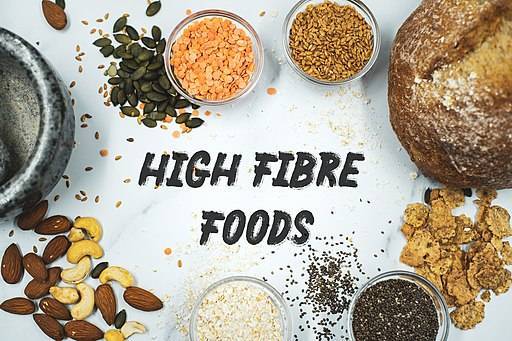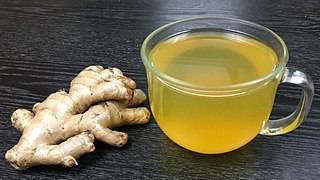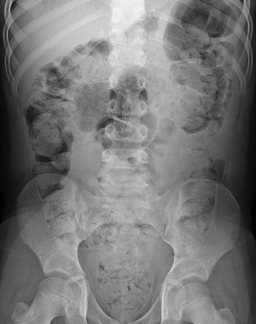Constipation is an uncomfortable problem that affects many of us from time to time. But instead of relying on over-the-counter or prescription medications, why not try some natural remedies? In this article, we look at nine natural remedies that can help you get relief fast!
Introduction
If you’re one of the millions of people who suffer from occasional constipation, you know how uncomfortable it can be. Constipation occurs when there is a delay in bowel movements or difficulty passing stool. Symptoms include bloating, abdominal pain, and feeling like you need to pass stool but can’t.
While constipation isn’t usually serious, it can be painful and frustrating. The good news is that there are several natural remedies that can help relieve constipation quickly.
Fiber is an important nutrient for keeping the digestive system regular. It’s found in fruits, vegetables, whole grains, and beans. Aim to get at least 25 grams of fiber per day. You can also take a fiber supplement such as psyllium husk or methylcellulose to help increase your intake.
Staying hydrated is another key to preventing and relieving constipation. Drink plenty of fluids throughout the day, including water, unsweetened tea, and coffee. Avoid sugary drinks like soda and juices, which can actually contribute to dehydration.
Exercise is another great way to keep things moving along smoothly in your digestive system. A moderate amount of exercise each day can help stimulate bowel movements and relieve constipation symptoms.
Finally, if you’re suffering from severe constipation, you may want to try a laxative or enema to help relieve your symptoms. These treatments should only be used as a last resort though, as they can be harsh on the
What is Constipation?

Constipation is a common digestive issue that can be caused by a variety of factors, including dehydration, a lack of fiber in the diet, and certain medications. Constipation can lead to uncomfortable symptoms like bloating, abdominal pain, and difficulty passing stool.
Fortunately, there are many natural remedies that can help relieve constipation quickly. Some effective home remedies include drinking plenty of fluids, eating high-fiber foods, exercising regularly, and taking over-the-counter laxatives or stool softeners.
Causes of Constipation
There are many different causes of constipation, and it can be tricky to pinpoint the exact cause in each individual case. However, there are some common causes that contribute to this condition. These include:
- A diet that is low in fiber: This can make it difficult for the digestive system to move food through the intestines, leading to constipation.
- Not drinking enough fluids: This can also lead to dehydration, which can make the stool harder and more difficult to pass.
- Certain medications: Some prescription and over-the-counter medications can cause constipation as a side effect.
- Lack of exercise: A sedentary lifestyle can contribute to constipation by slowing down the digestive system.
If you’re struggling with constipation, consider making some changes to your diet and lifestyle. Increasing your fiber intake and staying hydrated are two simple but effective ways to help relieve symptoms.
9 Natural Remedies for Constipation
There are many different natural remedies that can help treat constipation. Some of the most effective include:
Increase Your Fiber Intake

If you’re constipated, you probably need to increase your fiber intake. Fiber is found in fruits, vegetables, whole grains, and legumes. It adds bulk to your stool and helps it move through your intestines more easily. The recommended daily amount of fiber is 14 grams for every 1,000 calories you eat. So if you consume 2,000 calories a day, you should aim for 28 grams of fiber.
There are two types of fiber: soluble and insoluble.
Soluble fibers dissolve in water and can help with both diarrhea and constipation by absorbing excess water or adding bulk to your stool. Good sources of soluble fiber include oats, barley, legumes, apples, oranges, pears, and flaxseeds.
Insoluble fibers don’t dissolve in water but they add bulk to your stool and help food move through your intestines more quickly. Good sources of insoluble fiber include wheat bran, whole-wheat breads and cereals, nuts, seeds, and vegetables such as carrots, green beans, and tomatoes.
To increase your fiber intake:
- Add whole-grain breads and cereals to your diet. Look for products that have at least 3 grams of fiber per serving.
- Eat more fruits and vegetables. Aim for at least 5 servings a day. Good choices include broccoli , Brussels sprouts , cabbage , carrots , celery , cucumbers , greens
Increase Your Fluid Intake

If you’re experiencing constipation, one of the best things you can do is increase your fluid intake. This will help to soften your stools and make them easier to pass. Aim to drink at least eight glasses of water a day, and try to include other fluids like prune juice, soup, or herbal tea in your diet as well.
Prune Juice

If you’re looking for a natural remedy to help treat constipation, prune juice is a great option. Prunes are high in fiber and have a laxative effect that can help get things moving.
To make prune juice, simply blend up some fresh or dried prunes with water in a blender. You can drink it as is, or add it to smoothies or other beverages. Start with small amounts and increase as needed until you get the desired effect.
Coffee and Tea
There are many different ways to treat constipation, but one of the most effective treatments is to drink coffee or tea. Both coffee and tea contain caffeine, which is a natural laxative. In addition, both beverages can help to soften stools and make them easier to pass. If you are struggling with constipation, try drinking a cup of coffee or tea each day. You may also want to add a dash of honey or lemon juice to your beverage to help improve its flavor.
Ginger Tea

Ginger is a well-known remedy for digestive issues like constipation. It can help to stimulate digestion and make bowel movements easier. You can make a ginger tea by steeping fresh ginger in hot water for 10 minutes. Drink this tea 2-3 times per day. You can also add a bit of honey or lemon to the tea if you like.
Exercise Regularly

There are many different ways to exercise, so find an activity that you enjoy and make it a part of your regular routine. Exercise has many benefits, including improving your digestion and preventing constipation.
If you’re not used to exercising, start slowly and build up your endurance over time. A moderate amount of exercise is the key to maintaining good health and preventing constipation.
Aim for 30 minutes of exercise every day. This can be broken up into smaller chunks of time if needed. Some great exercises to help relieve constipation include walking, jogging, swimming, yoga, and Pilates.
If you have any underlying medical conditions, be sure to check with your doctor before starting any new exercise routine.
Probiotics
Probiotics are live microorganisms that are similar to the ones already present in your body, and they can be found in yogurt and other fermented foods. When taken orally, probiotics can help replenish the good bacteria in your gut, which is important for overall health. Probiotics may also help relieve constipation by helping to keep stool soft and preventing dehydration.
Magnesium Supplements
If you’re looking for a natural remedy to help treat constipation, consider taking magnesium supplements. Magnesium is a mineral that’s essential for the proper functioning of your digestive system. It helps move food through your intestines and keeps your bowel movements regular.
Magnesium supplements are available in many different forms, including capsules, tablets, powders, and liquids. The best way to take magnesium supplements depends on your individual needs and preferences. Some people find that they absorb magnesium better when they take it in capsule form, while others prefer the convenience of taking a powder or liquid supplement.
If you’re constipated, magnesium may help relieve your symptoms by increasing the water content of your stool and making it easier to pass. It may also help reduce intestinal inflammation and relax the muscles in your digestive tract.
When selecting a magnesium supplement, look for one that contains ingredients that are easy on your stomach and won’t cause any additional digestive issues. You may also want to talk to your doctor before starting any new supplement, especially if you have a medical condition or take medications that could interact with magnesium.
Essential Oils
The use of essential oils for constipation relief is a centuries-old remedy that is still used today. There are many different essential oils that can be used for this purpose, but the most common ones are peppermint oil, lavender oil, and ginger oil.
Peppermint oil is known for its ability to relax the muscles in the digestive tract and help move stool through the intestines. Lavender oil has calming effects on the body and can help to relieve stress, which can often be a contributing factor to constipation. Ginger oil has anti-inflammatory properties and can help to soothe the stomach.
To use essential oils for constipation relief, add a few drops of the selected oil to a diffuser or vaporizer and inhale the fumes for 10-15 minutes. You can also add a few drops of the oil to a warm bath and soak in it for 20 minutes.
Prevention Strategies
There are a number of prevention strategies that can be used to help treat and prevent constipation. These include:
- Increasing your intake of fiber: This can be done by eating more fruits, vegetables, and whole grains. Fiber helps to add bulk to the stool and makes it easier to pass.
- Staying hydrated: Drinking plenty of fluids helps to keep the stool soft and easy to pass.
- Exercising: Regular exercise helps to stimulate the bowel and keeps things moving along smoothly.
- Avoiding constipating foods: Some foods can contribute to constipation, such as cheese, milk, and processed foods. It’s important to eat a balanced diet that includes plenty of fiber-rich foods.
Conclusion
If you’re having trouble with constipation, these natural remedies can help get things moving again. Be sure to talk to your doctor if the problem persists or you have other concerns.




